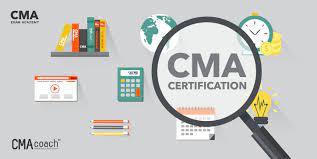How To Get Certified Management Accountant

Are How To Get Certified Management Accountant you ready to take your accounting career to the next level? Look no further than becoming a Certified Management Accountant (CMA). This globally recognized certification demonstrates proficiency in financial planning, analysis, control, and decision-making. But how do you become a CMA? In this blog post, we’ll walk you through the steps to get certified and set yourself apart as a top-tier accounting professional. Get ready to elevate your career with these tips on how to become a Certified Management Accountant!
What is a Management Accountant?
A management accountant is responsible for financial reporting, budgeting, and controlling expenses within an organization. They also provide guidance to managers on how to optimize their spending and improve their operations. A management accountant must have a degree in accounting or another related field and experience working in a managerial or financial position.
What are the Requirements to be Certified as a Management Accountant?
To become certified as a management accountant, candidates must first meet the requirements set forth by the American Institute of Professional Accountants (AIPA). These requirements include passing an exam and having three years of experience in accounting. Additionally, candidates must have a degree in accounting or have completed an accredited accounting program.
How to get Certified as a Management Accountant?
Becoming certified as a management accountant is a highly respected designation in the accounting field. It can help you stand out from the competition, and give you skills that are in high demand. There are multiple certification programs available, and each has its own requirements.
The first step is to decide which certification program is best for you. There are three main types of certification: professionalcertification bodies (PCBs), national boards such as the CPA or CA, and state boards. Each has different requirements and benefits.
PCBs offer more comprehensive certification programs, with more focus on accounting theory and principles. However, they also require more work and time to complete. National boards are popular because they offer a greater variety of certifications, including those for taxation and auditing. They also have less stringent requirements, making it easier to obtain a certification.
State boards offer a mix of certifications, including those for management accountants. They tend to have lower requirements than PCBs or national boards, making it easier to get started and qualify for certification. In addition, state boards often have reciprocal agreements with other states, so you can easily qualify for certification from another state board if that’s what you’re looking for.
Once you’ve decided which type of certification is right for you, the next step is to find an accredited program that meets your qualifications. Accredited programs usually have approval from one or more professional Certification Bodies (PCBs). Look for accreditation from
The Benefits of Becoming a Certified Management Accountant
If you want to move up in your accounting career, a certification could be the key. A certified management accountant is a highly qualified professional who has passed an exam demonstrating mastery of accounting principles. In today’s competitive job market, this credential can give you an edge over other candidates. Here are some key benefits of becoming a certified management accountant:
1. Increased earning potential – A Certified Management Accountant designation signals to employers that you have the knowledge and skills required for leadingaccounting roles in organizations.
2. Improved credibility – Being recognized as a top-level professional within your field can give you a leg up when seeking new clients or negotiating salary increases.
3. Increased job security – A certification from an internationally recognized organization such as the American Institute of CPAs (AICPA) provides peace of mind when it comes to finding future employment. Employers know that Certified Management Accountants are accountable for their work and regularly update their skillset with current best practices.
4. Greater opportunity for advancement – With experience and continued education, many CMAs go on to assume leadership roles in their organizations.


![[silent war] taming a tsundere](https://newsipedia.com/wp-content/uploads/2024/04/download-20-1.jpeg)

